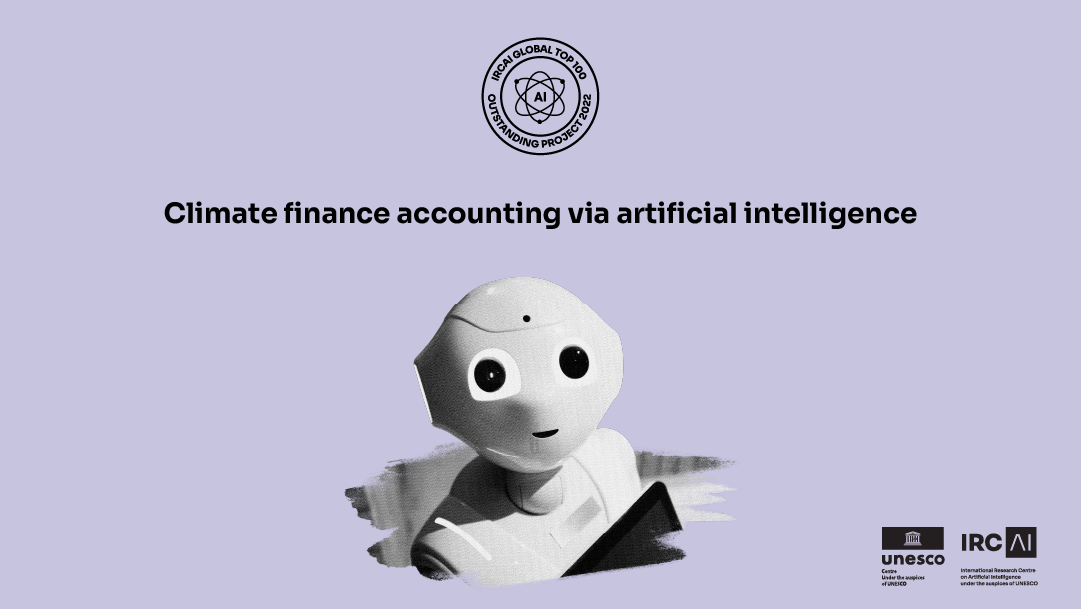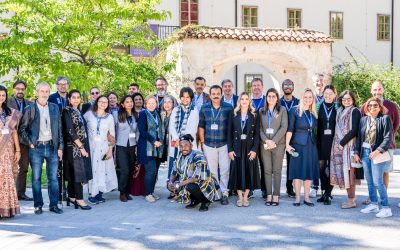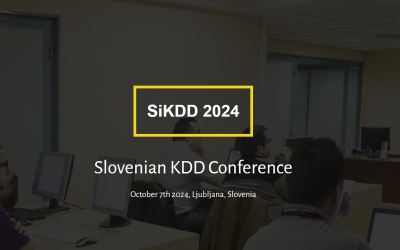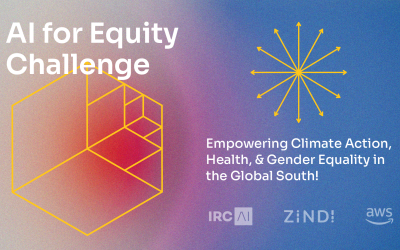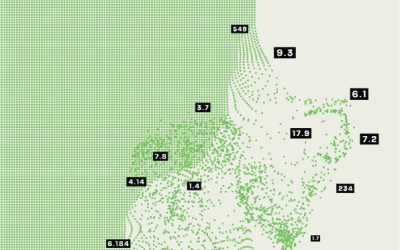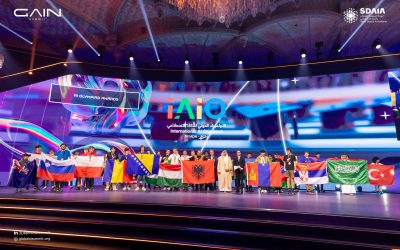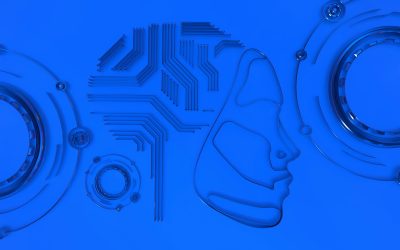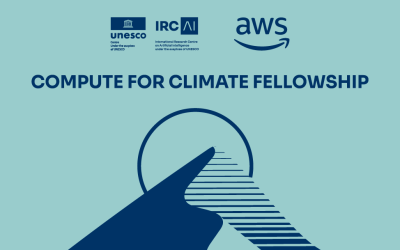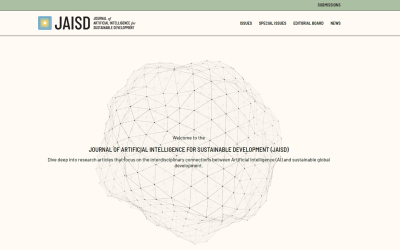After a thorough scientific, ethical, and entrepreneurial review of all projects submitted to the 2022 IRCAI Global Top 100 call, IRCAI has deemed ten submissions as “outstanding” based on their AI integrity, potential impact on the SDGs, business sustainability, and ethical design. One of those ten submissions was a joint effort from three researchers from ETH Zurich and University of St. Gallen who developed a Machine Learning model to identify and classify global climate finance flows. Earlier this month at our STI Forum side event, we had the privilege to hear from one of the three researchers, Anna Stünzi.
Unmet targets, bloated figures: A glimpse into the world of climate finance
At the 2009 COP conference held in Copenhagen (COP15), industrialized countries pledged that, from 2020 onwards, they will collectively raise $100 billion per year for climate action initiatives in developing countries. This pledge was further reaffirmed and extended at the COP16 and COP21. Yet, this target was not met. OECD measurements estimate climate finance provided and mobilized by developed countries for climate action in developing countries to have reached $83.3 billion in 2020, well short of the original target. However, even this figure is subject to controversy: Anna warns that “recipient countries, nongovernmental organizations, and academics have repeatedly criticized that this figure appears to be too high”. Oxfam evaluates that the figure has been “overstated by as much as 225 percent”. The organization points out that instruments like loans are frequently reported at face value, failing to account for repayments or other factors. Moreover, reported projects were often found to have a lower climate focus than disclosed.
Drawing to AI for evidence
Anna argues that overestimations persist due to the absence of independent checks on self-reported figures. To enable more effective reporting in the field, she and her teammates turned to AI and developed a machine learning model for a more consistent identification and classification of global climate finance flows. The team’s ML model, which they call “ClimateFinanceBERT”, evaluates development cooperation projects based on their textual project descriptions. As explained by Anna, the model first “evaluates whether the projects are relevant to climate change, and then, second, and if so, to which area”. As such, the model can not only judge whether the climate focus is indeed as relevant as disclosed, but also classify what kind of cause the financial contributions went for (e.g. solar energy, forest conservation, climate-resilient infrastructure, etc). Compared to manual verification, Anna notes that the ML-based model is not only more cost-efficient, but also a more consistent way to analyze climate finance data over long time frames.
A replicable approach
The team’s ML model has by now been used to classify as many as 2.7 million bilateral development assistance projects from the OECD’s database. Out of these, 80k have been classified as relevant for climate finance, totalling in $80B, backing up the criticism about reported climate finance figures. Having made their data and model openly available, its usage is not limited only to reporting or contributing parties, but can also be made use of by recipient countries, civil society and academia to independently check the numbers. As such, the team hopes to contribute to transparency and understanding on actual climate finance numbers: “We hope this helps create trust among negotiating parties and deliver important information”.
For more information about this project, have a look at their publication in Nature Climate Change (link), as well as two more articles with further background information (link, link).
